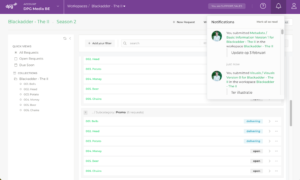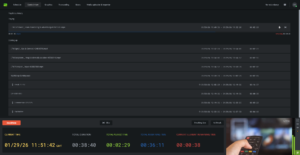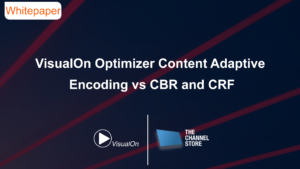If 2020 was a banner year for any business, that would undoubtedly be OTT. The global lockdown induced an unprecedented surge in OTT viewership resulting in a meteoric growth of subscribers, revenue, and investments into content creation/acquisition. While the heightened interest has been primarily COVID-led, it’s improbable the patronage will subside once the pandemic ends. Audience habits around content consumption have changed forever.
OTT businesses struggled to find content to retain the newly acquired and hungry for content eyeballs, with the slow down of traditional film and show production due to social distancing and lockdown. With no other option to feed their content supply chain, content owners and OTT/MVPDs turned their attention to catalog titles.

Mulan was the first tent pole to move to a streaming service (Disney+) during the pandemic. While films like Wonder Woman 84 and Tenet waited till December and were released in theatres, and James Bond’s No Time To Die moved its release to September 2021 for a global theatrical audience, others opted for the OTT route. Trolls World Tour broke streaming records as one of the first pandemic induced digital releases, and many followed: Borat 2, The Trial of the Chicago 7, Miss Juneteenth, Da 5 Bloods, Bad Boys for Life, and others went direct to OTT while some were available for home viewing within weeks of theatrical release.
However, monetizing library content has had its own set of challenges. The digital content ecosystem is marred by roadblocks like:
- Multiple platforms
- Metadata inconsistencies
- Huge volume of content
- Tight TAT, and
- Multiple contributors working on disparate systems
Advanced metadata tagging critical for effective recommendations engine is a key requirement for the OTT experience to be engaging. With tens of thousands of titles on a platform, getting relevant content on a personalized basis quickly to the subscriber is table stakes.
An effective metadata strategy can unlock the power of catalog content. Metadata is the key to transform any audio-visual content into a dynamic asset. Tags have changed decision-making from days, weeks, and often months into a matter of seconds. Metadata is aimed at facilitating quick searches for specific content, making the quality of the tags used extremely important. Often, the same tags have different meanings, and there are multiple tags possible for the same concept, leading to inappropriate content connections and inefficient search functionality. Different inflections of the same word (like singular or plural) can contribute to difficulties during searches as well. Content owners need a comprehensive system that applies genre- and culture-specific expertise to the entire process of metadata creation.
While metadata management is generally considered a mundane and laborious task, new advances in AI and ML have made the process efficient, fast and error-free, and last but not least, with limited human intervention.
Advanced AI/ML tools help content owners and distributors reach a targeted audience to monetize their assets. A comprehensive AI/ML-powered Metadata Management Service covers metadata creation, normalization, and validation. However, most AI solutions have not been able to solve this comprehensively.
Metadata powered by AI should be Comprehensive, Contextual, Actionable, and Accurate.
Comprehensive: More tags per clip leveraging relevant engines + custom engines
Contextual: M&E domain knowledge; Instructional Learning; Special Purpose Engines
Actionable: Deliver type and form of the data that is usable by the downstream software
Accurate: Research to find the best engine(s) for a purpose; Multi-dimensional cues; Supplement detection with algorithms for frame accuracy, FPS correction, etc.
For AI/ML to deliver better results for M&E organizations, a tailored, bespoke model that embraces the unique data nuances is key. A consultative approach to AI/ML can help to understand the end-use of the content and appropriately build a custom cataloging taxonomy. Additionally, solution providers have to be open and committed to work with any AI/ML engine, have the data science talent pool to interpret the data and its subtle nuances, and tweak it to suit the needs of the enterprise’s content.
AI-generated metadata allows for advanced search, recommendations, and targeted advertising. It facilitates instantaneous search results for otherwise hard-to-find content. AI-powered metadata can future proof your invaluable content library for multiple monetization opportunities in a world of entertainment that is most certainly going to be OTT-led.









